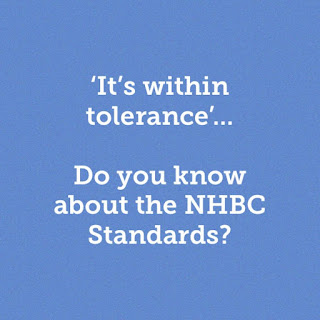Choosing the right solicitor or conveyancer for the property purchase
First of all, we had no idea what the difference was between a solicitor or conveyancer so we used the following link from HomeOwners Alliance to learn about it!
Buying a property involves multiple parties, such as the estate agent, broker, lender, your solicitor or conveyancer and the seller’s solicitor or conveyancer. Working with a diligent and reliable professional definitely helped to make our process smoother.
We have found that buying a property is a stressful process. Last year, we were close to exchanging contracts for a new build property that we loved! Sadly, the property transaction fell through. It was very upsetting at the time but at least we found a great solicitor.
Our solicitor had over 15 years of experience and when issues came up, we were able to draw upon her previous experience. She was friendly, helpful and great at keeping us updated. There was a quick turnaround from her side, she promptly replied our queries and was always willing to explain terms to help us understand the legal paperwork. These are the qualities of a solicitor or conveyancer that we found important for a smoother process.
Having a solicitor who you can trust and depend on means that if there are delays, you know they will be helping you follow up and chase (without needing you to ask them to chase) and if there are issues, they can help you understand the risk and offer solutions.
Another learning was that even if you have a great solicitor and have your mortgage offer ready early on, the process can still take a long time as it depends on so many parties. If the contract papers take a while to be sent across, then that causes delays. Even if your solicitor can turnaround the documents quickly, there could still be delays if it takes weeks for the other party to provide them with replies to enquiries. As a result, this could still mean your transaction takes a while to complete. Of course, the timelines are different for each transaction so some might be quicker.
Steps for choosing a solicitor or conveyancer:
1. Understand the difference between a solicitor and conveyancer
2. Ask for recommendations
It is hard to identify whether the solicitor or conveyancer has the qualities that I mentioned above based on a website so it is a good idea to ask colleagues, family and friends for recommendations. If they have worked with a specific solicitor or conveyancer, then they will be able to tell you more about their experience.
3. Obtain some quotes
Once you have identified the firms you are interested in, the next step is to obtain a quote to see what the fees are. From our research, the fees can vary and you need to look carefully to see if you are comparing the same services.
Here are the queries that we asked when we were getting quotes:
- Typically what is the timeline from making the offer through to completion?
- If we instruct [name of firm], who will be handling my case and which professional bodies are they a member of?
- Will it be the same solicitor throughout the process?
- How often and when will we be provided with updates?
- What costs will be incurred if the sale falls through that I will need to pay?
- Which mortgage provider’s approved solicitor panel is the firm on?
- When do I need to pay the conveyancing fees?
- Is the legal fee a fixed charge?
- Please can you provide a copy of the Terms of Business?
- Please provide a breakdown of the services included as part of the standard fee structure as well as potential additional fees we should be mindful of? It is important to get a full breakdown of services so that you can accurately compare the quotes on a like for like basis.
The HomeOwners Alliance website has a useful page on what questions to ask!
For a new build development which has recommended solicitors, we also asked the following:
1. How many plots has the firm worked on for this development?
2. Have there been any issues with completion for these plots? If yes, what kind of issues?
3. When was the last time you have completed a transaction for this development?
4. How long has the process taken for the plots that have now completed?
5. Are you able to take our case immediately?
The reason why we asked if the firm has worked on multiple plots in a development is that they would already be familiar with the development, have a working relationship with the developer’s solicitor and have a better idea of any issues that might be faced based on the previous transactions.
4. Do some further research based on the responses
By asking questions, we were also able to identify which firms we would not be using. For example, we decided to not use a firm if it takes more than two working days to respond to our initial queries. If they are unable to promptly respond these queries, we did not have confidence that they would be able to keep us updated regularly if we were to use them for the property purchase.
Once we received the responses, we did some more research. For example:
This way we could see when they were admitted as a solicitor and their areas of practice. You can also find details of the firm which includes, the address, the number of solicitors in the firm and its accreditations. The firm we used had The Law Society's Conveyancing Quality Scheme accreditation which gave us more comfort.
If you are using a conveyancer, you can use the Council for Licensed Conveyancers (CLC) website to find a CLC lawyer.
- Compared the quotes
- Read online reviews e.g. using Trustpilot.com, Google Reviews
- Had a detailed look at their websites
Hope this was a useful post and that you find a great solicitor or conveyancer!
It would be great to hear from your experiences so please do leave a comment below.
Jess





Comments
Post a Comment